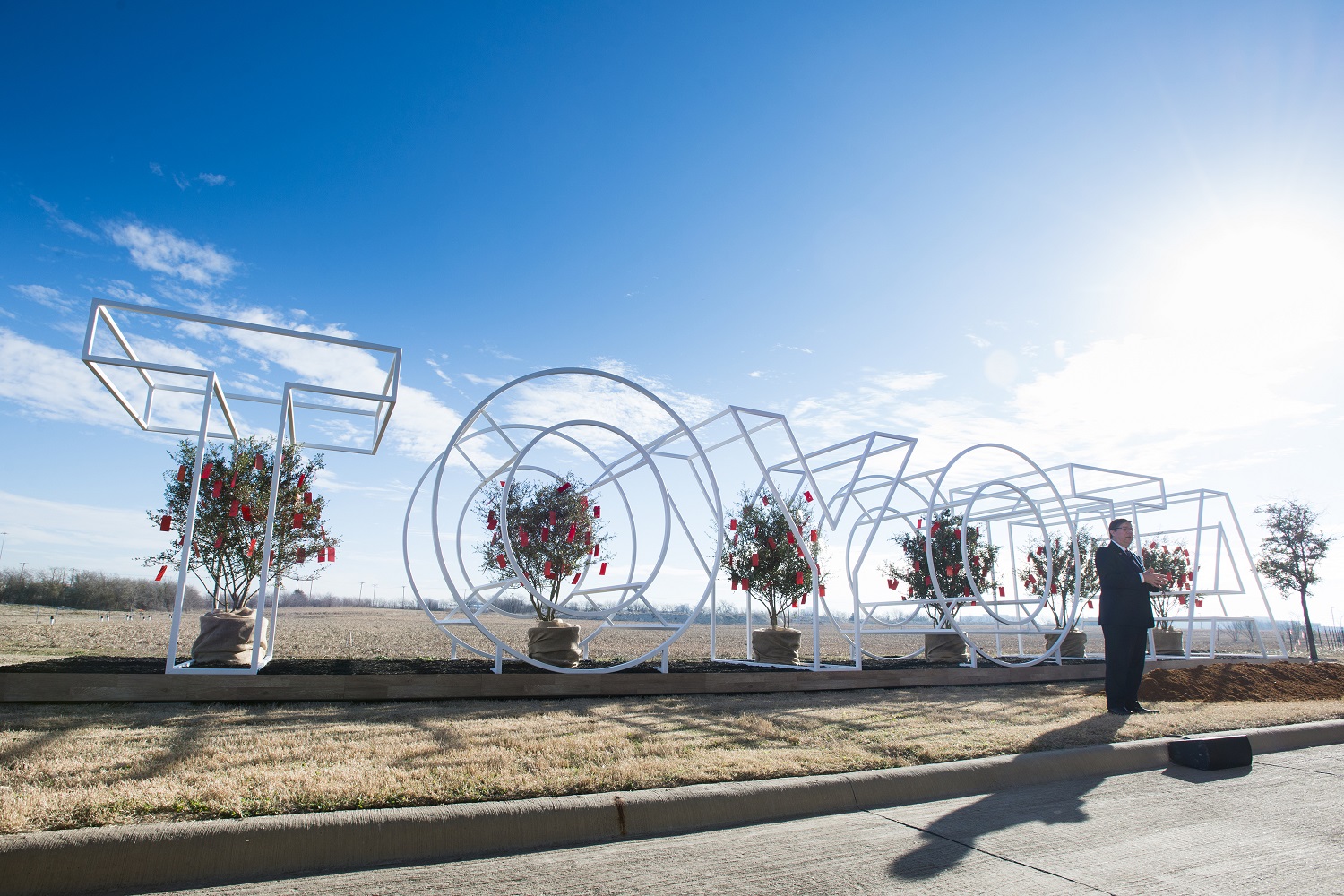Yesterday, representatives from Toyota gathered in Plano, Texas to break ground on the automaker’s new U.S. headquarters. It was a beautiful day full of blue skies, prepared speeches, and hokey formalities.
None of the speakers mentioned that, just down the road, homophobes were tracking mud all over the red carpet that state officials had metaphorically rolled out for Toyota by vowing to keep discrimination against LGBT Texans legal.
A RECAP
When we first heard about Toyota’s decision to move from its longtime home in Torrance, California to a new campus in Plano, Texas, we were immediately worried about Toyota’s LGBT employees.
We knew that Toyota’s employment policies would remain the same, and we had no doubt that it would continue to ace the HRC’s Corporate Equality Index. But what about the automaker’s LGBT workers who were legally married to same-sex spouses? What about anti-discrimination laws that extend a host of protections to LGBT Californians but don’t exist in Texas? Today, those remain valid concerns.
As for the former, we hope that marriage equality will come to the Lone Star state before Toyota’s big move in late 2016 or early 2017. The 5th Circuit Court of Appeals has heard arguments against the state’s ban on same-sex marriage, and this summer, the Supreme Court of the United States may issue a broader ruling that settles the matter once and for all, across the entire nation. You can never guess how judges will rule, but signs point to favorable decisions for LGBT advocates.
Anti-discrimination laws are a very different matter. Texas has no statewide protections for LGBT citizens, and the chances of such laws being enacted are roughly equivalent to the chances of snow falling in Dallas this August. That means that the burden of preventing LGBT discrimination rests with individual municipalities.
Back in December, the city of Plano passed such an anti-discrimination ordinance — perhaps in anticipation of Toyota’s arrival. Almost immediately, though, homophobes began gathering signatures to put that ordinance up to a vote in the hope of repealing it.
Which brings us to yesterday. As Toyota used a Tundra pickup rigged with a plow to break ground on its new campus, bigots were submitting 7,000 signatures — twice the number needed — to place Plano’s anti-discrimination law on an upcoming ballot. That’s probably not the kind of gift Toyota expected in its welcome basket.
We’ve asked Toyota for a statement about these developments. So far, we’ve received no comment.
In the meantime, I suppose we’ll continue feigning surprise that certain segments of the American public think it’s a-okay for the majority to dictate the rights of the minority. Join us, if you can bear it.

Why, if I disagree with you on a law that could potentially discriminate against me, as a small business owner, does that make me a “homophobe” or a “bigot”? Why can’t I just be another human being who has a different point of view and is following the requirements of the law so that my voice can be heard, too? As far as “the majority dictating the rights of the minority”, well, I suppose that’s called democracy.
Generally speaking, in a democracy like ours, the majority does set policy for the country. We go to the polls, we elect officials, we pass ballot initiatives, and so on.
However, there are certain things that the majority CANNOT do. Those things are codified in the U.S. Constitution via a series of amendments. They’re also codified into federal, state, and local laws via a series of non-discrimination ordinances, like the Civil Rights Act of 1964 and Plano’s non-discrimination act. In those cases, the legislative branch of government — sometimes with prodding from the executive and judicial branches — has determined that some things are completely forbidden because they hurt the common good. Slavery is one of those things, so is discrimination on the basis of sex, race, and other characteristics.
Non-discrimination ordinances like the ones in Plano, Houston, and other cities are designed to protect minorities from harassment and disenfranchisement. They don’t prevent you from holding any views or opinions, they don’t outlaw groups like the KKK. They simply ensure that everyone is treated the same in businesses, in housing, and in other ways. So, if you offer your services to the public, you have to serve Christians and Jews, women and men, gays and straights.
Look, I grew up in Mississippi, and I knew plenty of racists — I still do. They have deeply held beliefs, which they often justify with quotes from the bible. But when they go to work, they set that aside. They sell cupcakes and auto parts to blacks the same way they do to whites. I’m sure you can understand the implications of offering different services — dining, medical, etc. — to different people on the basis of their skin color. It works the same with sexual orientation.
BOTTOM LINE: You’re welcome to your point of view. Shout it from the rooftops. But as a business, you have to treat everyone the same, according to the tenets of the law.
So very true!